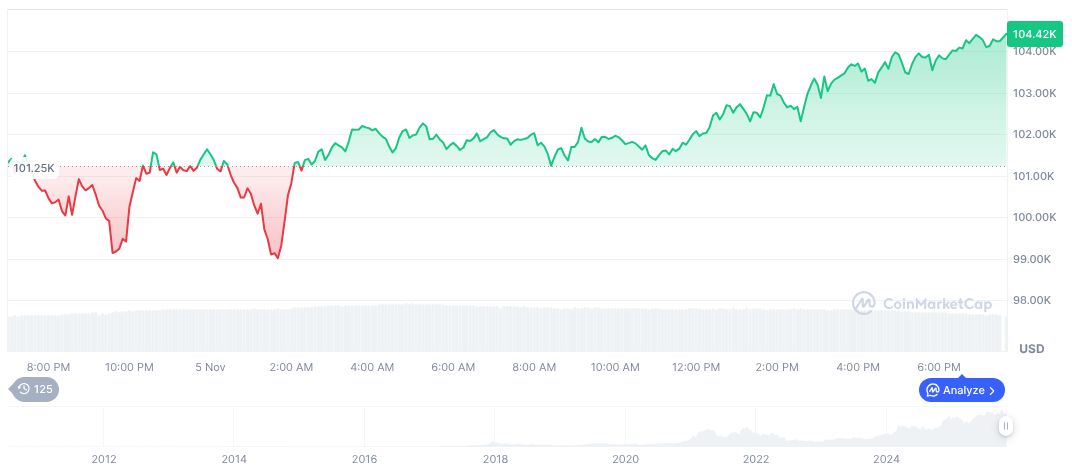- If Trump’s tariffs ruled illegal, $140B refunds possible, affecting deficit.
- Potential for reduced structural tariffs and enhanced purchasing power.
- Market reactions limited due to minimal impact on S&P 500 earnings.
UBS Group analysts issued a report highlighting potential fiscal implications if the U.S. Supreme Court deems former President Trump’s tariff policy illegal, leading to $140 billion in refunds.
Refunds could impact the U.S. Treasury, potentially resulting in a more flexible trade environment while influencing Federal Reserve policy through eased inflationary pressures.
$140B in Tariff Refunds Could Shift Economic Landscape
UBS Group analysts have highlighted the significance of the Supreme Court’s evaluation of Trump-era tariffs, anticipated to dictate a substantial refund of $140 billion to importers. This situation involves key figures such as UBS, Donald Trump, and the U.S. Supreme Court. Potential consequences include diminished trade policy flexibility. As tariffs are reviewed, the effective tariff rate may decrease, facilitating boosted household purchasing power and potentially soothing inflationary pressures. The Federal Reserve could thus find easing policies enhanced with broader room for interest rate adjustments. If the ruling cuts tariff costs, investor sentiments may favor stock markets. Key figures remain silent, but market speculation anticipates adjustments should trade partners refrain from retaliation.
According to CoinMarketCap, Bitcoin (BTC) hovers at $102,390.77, commanding a market dominance of 59.79%. Its market cap stands at $2.04 trillion, despite price dips over recent months. BTC’s trading volume decreased by 48.78% to $57.10 billion in 24 hours. The Coincu research team predicts that should fiscal changes materialize, crypto markets may experience indirect fluctuations influenced by monetary policies impacting broader economic variables. Although exact avenues remain uncertain, expectations are that stablecoin flows could adjust alongside shifts in U.S. dollar policies, reflecting evolving macroeconomic landscapes.
“The Fed could leverage this scenario to normalize policy without risking inflation overshoots.” – UBS Research Report
Crypto Movements Tied to U.S. Fiscal Changes
Did you know? Historically, large fiscal repayments like this could trigger economic shifts, though the U.S. hasn’t seen one with such a profound potential impact on the federal budget deficit since similar macroeconomic challenges in the early 1980s.
According to CoinMarketCap, Bitcoin (BTC) hovers at $102,390.77, commanding a market dominance of 59.79%. Its market cap stands at $2.04 trillion, despite price dips over recent months. BTC’s trading volume decreased by 48.78% to $57.10 billion in 24 hours.
The Coincu research team predicts that should fiscal changes materialize, crypto markets may experience indirect fluctuations influenced by monetary policies impacting broader economic variables.
| DISCLAIMER: The information on this website is provided as general market commentary and does not constitute investment advice. We encourage you to do your own research before investing. |
Source: https://coincu.com/markets/us-supreme-court-tariff-ruling/
